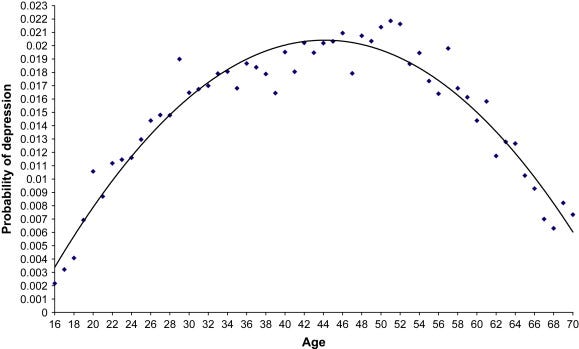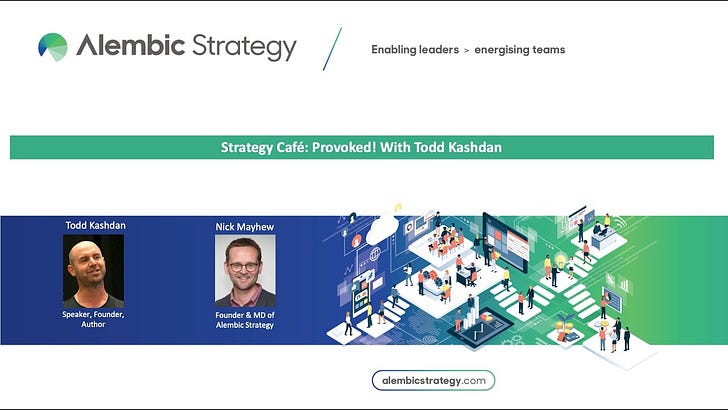Well-Being Profiling, Narrative Therapy for Trauma, and Neck Down Psychology
Plus An Answer to the Question: What Age Are Adults Most Unhappy?
This newsletter is for people seeking sophisticated content on well-being + optimal performance. This post is free for everyone.
Here's an amusing fact about me - I possess a social quirk where I'm oblivious to the emotions projected by my facial expressions. Just the other day, I was playing pickleball with three friends when Tania, on the other side of the net, pointed at me and said, "Why is he smirking? What is he planning? Something strange is going on!" I was utterly unaware of my smile. So, while you may hesitate to watch the above video conversation, fearing my thumbnail's sight of indigestion, remember I know not where the muscles behind my eyes and mouth wander. Click play anyway.
If you want to listen to this discussion, it’s on Spotify - here.
You will hear from four people with amazing careers. In case you want to contact any of them, here is their contact information (don’t be shy):
Panelists
Angie Corinne || Production Manager - Atlantucky Brewing || angie@atlantucky.com
Kailie Smith || Founder - Safe Bars RVA || safebarsrva@gmail.com
Julie Tridente || Director of Brewing Operations - Precarious Beer Project || julie@precariousbeer.com
Dan Jablow || Director of Brewing Education - University of Richmond || djablow@richmond.edu
I’m sure you will be thinking about that career aptitude test in High School wondering, “Was working at a craft brewery an option? I want a re-do.” Their practical suggestions are easy to implement. We discuss the importance of narrative therapy for trauma and the essential element of caring for your body as a path to mental health. Their personal mental health disclosures might resonate and motivate you to take action. Put yourself first. Here is an article I wrote on this theme:
Would the World Be Better Without Narcissism?
This post is free. If you enjoy it, read the benefits of upgrading to premium:
When asked for my definition of wellness, I dove into well-being profiles. I didn’t have sufficient time to flesh this topic out. Here is what I wanted to say:
Well-Being Profiles
Do not limit your thinking about well-being to a single dimension. Part of the reason that scientists fail to understand humans in the wild is they only tackle and manipulate a small set of variables. So you end up with useful, but non-comprehensive findings such as this:
This impressive study found that the U-shaped curve of happiness exists in most countries from Bosnia to Kyrgyzstan to Macedonia to Zimbabwe. Happiness tends to drop significantly as adults reach their 40’s and 50’s. Details can be found - here. The next question that naturally arises is why? Let’s have that conversation here:
Unsurprisingly, the results are similar when we switch to when adults are most likely to develop depression:
This work normalizes the ebbs and flows of mental health across the lifespan. However, my mind immediately asks what happens when you switch to other dimensions of well-being. Because you can live a fulfilled life with or without elevated happiness. It is merely one, albeit big, dimension.
A more comprehensive approach exists which can be referred to as Well-Being Profiles. Here are four research teams attempting to capture the multiple dimensions that exist. Notice the ubiquitousness of meaning and purpose in life, a sense of competence or mastery, and a sense of belonging or positive relationships. While each is related to happiness, none of them are features of this thing called happiness. You contain multitudes. If your profile is jagged, and happiness is rather modest, do not change to fit the norm. Mentally check on whether it is working for you, even if nobody ever gains access to the inner workings of your mind.
Provocations
You will never score at the upper limits on each dimension suggested by Corey Keyes (read his scathing commentary on my work - here), Ed Diener (read lessons from Dr. Happiness - here), Martin Seligman (read the productive conflict between him and our lab - our initial article then his response then our response to him), and the eminent scientist that I am still mourning, Felicia Huppert (listen to her - here).1
Upon reflecting on the well-being profiles above, ask yourself:
Which dimensions are most important to you?
What is the smallest unit of action I can take today and tomorrow to improve that dimension?
Thanks for reading Provoked. If you’d like to support my work please:
Leave a ❤️ so that others can find it;
Leave a comment (I’ll do my best to respond);
Share this post by email or on social media;
Start a paid subscription (as it is you, the readers, who support this work of educating the public about science and mental health)
Todd B. Kashdan is an author of several books including The Upside of Your Dark Side (Penguin) and The Art of Insubordination: How to Dissent and Defy Effectively (Avery/Penguin) and Professor of Psychology and Leader of The Well-Being Laboratory at George Mason University.
Read Past Issues Here Including:
Avoiding, Accepting, and Harnessing Pain: Turning Stoicism into Scientific Tools and Strategies
Want to know the emotion that people are most afraid of? How to handle painful emotions? I did an amazing live interview with one of the most brilliant, underappreciated minds in the well-being space: Dr. Nick Mayhew.
With great sadness, Felicia died on August 6, 2024 as a result of metastatic breast cancer. I was in the middle of writing this post when I heard. Here is what I wrote about her in an upcoming scientific article dedicated to her impact:
Dr. Felicia Huppert is a giant in well-being science. She is such an important figure because of her emphasis on how improving well-being and reducing disorder might differ depending on the part of the world. Unlike many of us, her work did not suffer from a lack of diversity in samples studied (the obsession with Western, Educated, Industrialized, Rich, and Democratic areas). As such, her work will last the test of time.
I remember being on a bus sitting next to her in Australia, traveling from one positive psychology conference to the next. She asked me, "Why are you so playful on stage?" I explained my thoughts on pedagogy and the importance of attending to an audience's curiosity and vitality. We spoke for nearly an hour about educating the public about science on that trip. As we got off, she gently grabbed my arm to tell me her opinion changed. She was a serious woman who took science seriously and produced great science. On that bus, I realized how candid and open she is. How comfortable she is having uncomfortable conversations. By the end of that trip, we were no longer strangers. We were two very different personalities who really wanted to work together with big plans to do so. I regret it never happened. But she knows how much I respect her work, cite her work, love her work - because I told her. We should all be so fortunate to know the people we respect know this.









Hiya. This article popped back up in my feed this morning. I do love it. Thank you! May I add a sub-provocation. “Neck down” is a great metaphor with hammer like impact to remember the nervous system has to waggle a body to work out the world out there. But like a hammer it can miss the nail. A shout out (as you reference) for the face which is above the neck and gets more attention! Speaking and emoting facially are so like walking or gesturing. Don’t forget what’s above the neck too!
Love the way you explain things and write